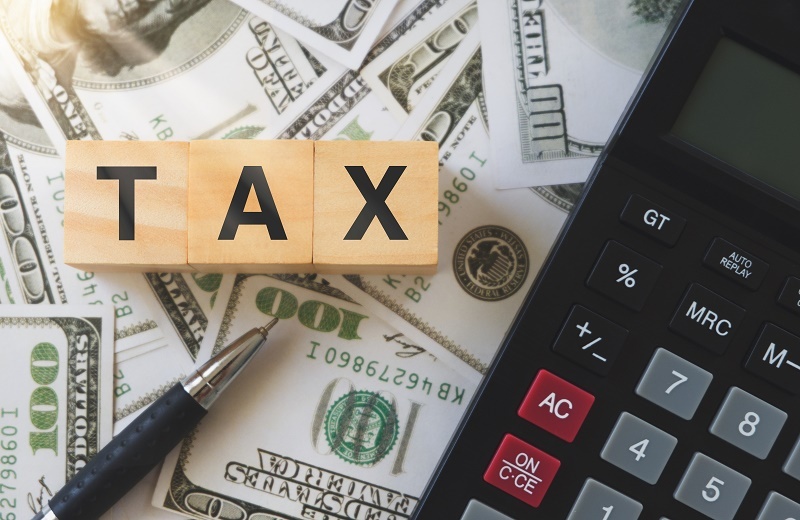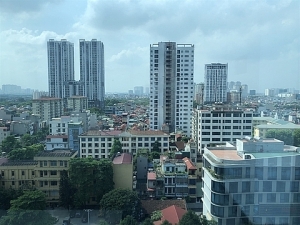Tax proposal for second properties presents questions over viability
In a report to the government in December, the People’s Committee of Ho Chi Minh City proposed a pilot for a tax policy to be added on purchases of two or more properties.
The pilot aims to provide the practical basis for developing general policies, increasing stable and sustainable revenue for the local budget, and limiting speculation on abandoned houses and residential land, which wastes resources.
However, the proposal to levy tax on two or more properties in Ho Chi Minh City may not prevent speculation but instead hurt the real estate market, according to experts.
Supply in Ho Chi Minh City has reached its lowest level in many years. The legal barrier is also hindering many projects from being implemented while the land fund is increasingly scarce, many projects are delayed, investment costs are increasing, and investors are moving to second cities.
Some insiders say the tax proposal could also limit demand. Many parents may have to rent instead of buy homes for younger children who cannot afford to buy homes for themselves.
There is also the possibility of circumventing the law by letting family members own the house, a situation that is difficult for local authorities to manage.
Moreover, according to the Institute for Policy Research and Media Development of Ho Chi Minh City, the real estate market can only levy this tax if it is digitalised and transparent in other factors, such as the land fund, tax categories, and what the tax will be used for.
| Taxes on 2+ properties elsewhere Singapore: Singaporean citizens are taxed at 17 per cent of the value of the second property. Three or more properties are taxed at 25 per cent. United States: Annual tax of 1.2-4 per cent of the value of real estate, including house and land. For the second home onwards, the tax rate applies at 12-18 per cent (depending on the state) of the total net profit. Germany: The applicable tax rate ranges 14-45 per cent of the property value if the buyer has owned it for fewer than 10 years. For those who have owned that property longer and lived in it continuously for three years, the tax is exempted. In addition, there is a trade tax of 3.5 per cent of profits from selling real estate. This tax applies to individuals who own and sell more than three properties in five years. Shanghai, China: The owner of two or more properties will be levied an annual rate of 0.4-0.6 per cent of the property price, depending on the size. |
 |
| Tax proposal for second properties presents questions over viability, photo shutterstock |
| Matthew Lourey-Managing partner, Acclime | |
The taxation of real estate can be controversial as real estate has an emotional attachment, but it needs to be done in a manner that results in the best economic outcomes for an economy. The international approach towards real estate taxation looks at two revenue models: taxation on transactions and taxation of holdings. The result is to ensure that the market is fair and those receiving economic benefits are taxed appropriately. For Vietnam, the holding and ownership of multiple properties have allowed speculation and accumulation to occur without the economic benefits being taxed. Taxation of transactions only permits those with wealth to acquire and hold without contributing to the economy. There is an argument that taxing those with multiple real estate holdings is a progressive tax (only those with wealth will pay) and, therefore, will permit lower taxation on other taxpayers/sectors – but whether this occurs will require strong macro-level economic planning. The implementation of taxation based upon holdings of real estate, though, will test the reliability and accuracy of Vietnam’s (and, specifically, Ho Chi Minh City’s) registry of land ownership. Taxation can only be expected to be accurate when the underlying data to support the tax system is complete and transparent. Without this, avoidance will be rife, and the policy implementation will not meet the government’s aims. | |
| Alex Crane - Managing director Knight Frank Vietnam | |
We encourage broad public, tax, and legal consultation before implementation of this proposal. The broad idea of a tax on two or more homes/land is good and will benefit income for the city, which ultimately should be ring-fenced for costs of infrastructure and public services. Infrastructure and public services, in turn, improve the lives of residents and arguably will increase the value of real estate in the long term. Two neighbouring economies, Thailand and Singapore, both have similar tax structures, but they also have a better land registry, which makes implementation much more straightforward than in Vietnam. The foreseeable issues will relate to the tracing and registration of properties, the allocated tax status/rate of the assets, and the status of the owners. Without a land registry, as is in place in most other countries, the authorities may likely find tracing and implementation burdensome. The off-shoot opportunity and our hope would be more transparent ownership status on land and assets, which could be extrapolated to other authority uses. | |
| Duong Thuy Dung - Executive director CBRE Vietnam | |
Taxes on two or more properties in this country could cause short-term deterioration in market liquidity due to an imbalance between purchase and sale prices when buyers need to consider the new tax and sellers want to expected margin after adding the tax value. The tax will significantly impact the market as investors adjust their investment strategies. At present, the increase in the price of real estate leads to profits at the time of sale, causing speculation and empty houses. Therefore, the tax on two or more houses will force investors to use the property effectively during the holding period due to the impact of new financial pressures. For the investment mentality of foreigners this may not be a big decision, as they are familiar with the concept of such a real estate tax. | |
| Vo Hong Thang - Deputy director of Research and Development, DKRA Vietnam | |
I support the proposal but there needs to be a specific roadmap – maybe 3-5 years from now in the big cities of Ho Chi Minh City, Hanoi, Danang, and Can Tho. However, if this tax is applied now, it could freeze up the Ho Chi Minh City property market. Investors, meanwhile, will be more cautious in making any decisions. The second property tax is a complex problem that requires specific calculations to avoid unfairness. It is necessary to have a national database on land management, including genuine owners and a truthful real estate valuation system, including land and assets attached to the land, from which to identify the tax levels. It is necessary to calculate the tax rate appropriately to limit speculation so that real estate is not abandoned or put into operation in a way that suffocates the market. The real estate market is also a commodity market – if the intervention is too rough, it will have a domino effect on other sectors. If this pilot tax is implemented in Ho Chi Minh City, the investment flow could move to neighbouring provinces such as Binh Duong, Long An, Dong Nai, or Ba Ria-Vung Tau because investors will see that the cost of capital will increase and this will affect their expected returns. | |
| Thang Nguyen - Special counsel, ACSV Legal | |
There are some notable issues to be considered. If the tax does not apply to residents outside Ho Chi Minh City who own property in the city, this would not be fair to permanent residents. The authorities should also consider exemptions for circumstances where people have a legitimate need for multiple properties or the properties are used and not abandoned. If the tax liability is only incurred on obtaining a land use rights certificate or property ownership certificate, people can choose to indefinitely delay obtaining them to avoid paying tax. Competent bodies also have to determine suitable tax rates. The same tax rate cannot be applied to properties with different values, types, and locations. A progressive/flexible tax rate scheme is worth considering. One more thing is the alignment/consistency with existing laws. There does not seem to be a suitable tax type in existing tax regulations. There is a non-agricultural land use tax, but this applies to land use rights only. Given the lack of transparency and digitalisation in Vietnam’s real estate market, authorities should consider possible ways people could circumvent the tax and how to counter them, such as having relatives/nominees stand in for actual property owners and land users on deeds. |
 | Hanoi house owners live in rentals to lease out properties for profit Even though he has invested in real estate for more than 10 years and owns houses from the north to the south of Vietnam, Nguyen Kien still lives in a rented house in Hanoi's Cau Giay District. |
 | Tourism real estate properties remain in legal limbo Experts have called for clarifying the legal status of tourism real estate properties such as condotels, tourism villas and shophouses to safeguard stakeholders’ benefits, helping revive the tourism sector. |
 | Second-home market blossoms in Danang Second-home properties in Danang are expected to gain more attention through the recovery of the economy. |
What the stars mean:
★ Poor ★ ★ Promising ★★★ Good ★★★★ Very good ★★★★★ Exceptional
Related Contents
Latest News
More News
- Construction firms poised for growth on public investment and capital market support (February 11, 2026 | 11:38)
- Mitsubishi acquires Thuan An 1 residential development from PDR (February 09, 2026 | 08:00)
- Frasers Property and GELEX Infrastructure propose new joint venture (February 07, 2026 | 15:00)
- Sun Group led consortium selected as investor for new urban area (February 06, 2026 | 15:20)
- Vietnam breaks into Top 10 countries and regions for LEED outside the US (February 05, 2026 | 17:56)
- Fairmont opens first Vietnam property in Hanoi (February 04, 2026 | 16:09)
- Real estate investment trusts pivotal for long-term success (February 02, 2026 | 11:09)
- Dong Nai experiences shifting expectations and new industrial cycle (January 28, 2026 | 09:00)
- An Phat 5 Industrial Park targets ESG-driven investors in Hai Phong (January 26, 2026 | 08:30)
- Decree opens incentives for green urban development (January 24, 2026 | 11:18)






 Tag:
Tag:




















 Mobile Version
Mobile Version